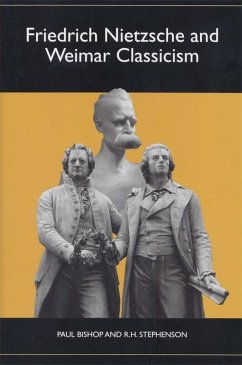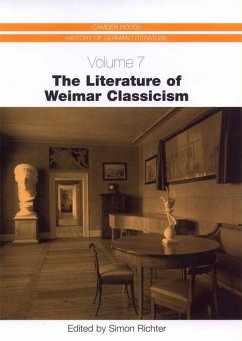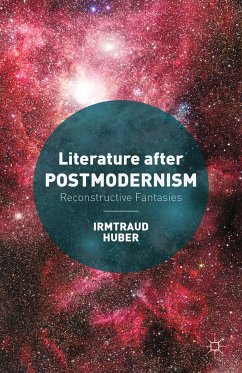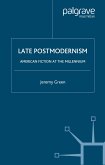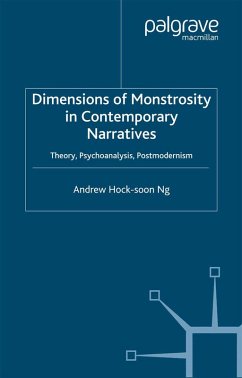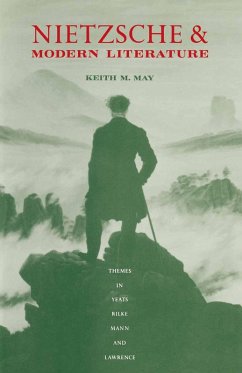Opens up a fresh and original perspective on Nietzsche by showing the important influence of Weimar classicism on his work.
This book argues that Nietzsche's polemics against the 19th-century reception of Goethe and Schiller should not obscure his own more positive evaluation of Weimar classicism, as has generally been the case. The authors uncover thecontinuing influence of Weimar classicism at the very heart of Nietzsche's aesthetic theory, which in turn became the cornerstone of his epistemological and moral concerns. The book takes as its starting point the view that Thus Spoke Zarathustra has a single, coherent message that it identifies with what Goethe called "the gospel of beauty." A hitherto unappreciated unity of plot, style, and argument is thus revealed in both Zarathustra andNietzsche's philosophical oeuvre as a whole, showing how he participates in a "perennial aesthetic." In this connection Nietzsche's statement in The Gay Science is revealing: "I want to learn more and more to see what is necessary in things as what is beautiful? Then I shall be one of those who make things beautiful." The book provides an overview of related scholarly literature; discusses Nietzsche's aesthetic theory in The Birth of Tragedy; recounts the composition of Thus Spoke Zarathustra and offers an interpretation of its "aesthetic gospel"; a concluding chapter explores historical continuities in aesthetic theory. By demonstrating the constitutive function of the aesthetics of Weimar classicism in his philosophy, this book opens up a fresh and original perspective on Nietzsche.
Paul Bishop is William Jacks Chair of Modern Languages, and R. H. Stephenson is Emeritus Professor of German Language and Literature, both at the University of Glasgow.
This book argues that Nietzsche's polemics against the 19th-century reception of Goethe and Schiller should not obscure his own more positive evaluation of Weimar classicism, as has generally been the case. The authors uncover thecontinuing influence of Weimar classicism at the very heart of Nietzsche's aesthetic theory, which in turn became the cornerstone of his epistemological and moral concerns. The book takes as its starting point the view that Thus Spoke Zarathustra has a single, coherent message that it identifies with what Goethe called "the gospel of beauty." A hitherto unappreciated unity of plot, style, and argument is thus revealed in both Zarathustra andNietzsche's philosophical oeuvre as a whole, showing how he participates in a "perennial aesthetic." In this connection Nietzsche's statement in The Gay Science is revealing: "I want to learn more and more to see what is necessary in things as what is beautiful? Then I shall be one of those who make things beautiful." The book provides an overview of related scholarly literature; discusses Nietzsche's aesthetic theory in The Birth of Tragedy; recounts the composition of Thus Spoke Zarathustra and offers an interpretation of its "aesthetic gospel"; a concluding chapter explores historical continuities in aesthetic theory. By demonstrating the constitutive function of the aesthetics of Weimar classicism in his philosophy, this book opens up a fresh and original perspective on Nietzsche.
Paul Bishop is William Jacks Chair of Modern Languages, and R. H. Stephenson is Emeritus Professor of German Language and Literature, both at the University of Glasgow.
Dieser Download kann aus rechtlichen Gründen nur mit Rechnungsadresse in A, D ausgeliefert werden.

